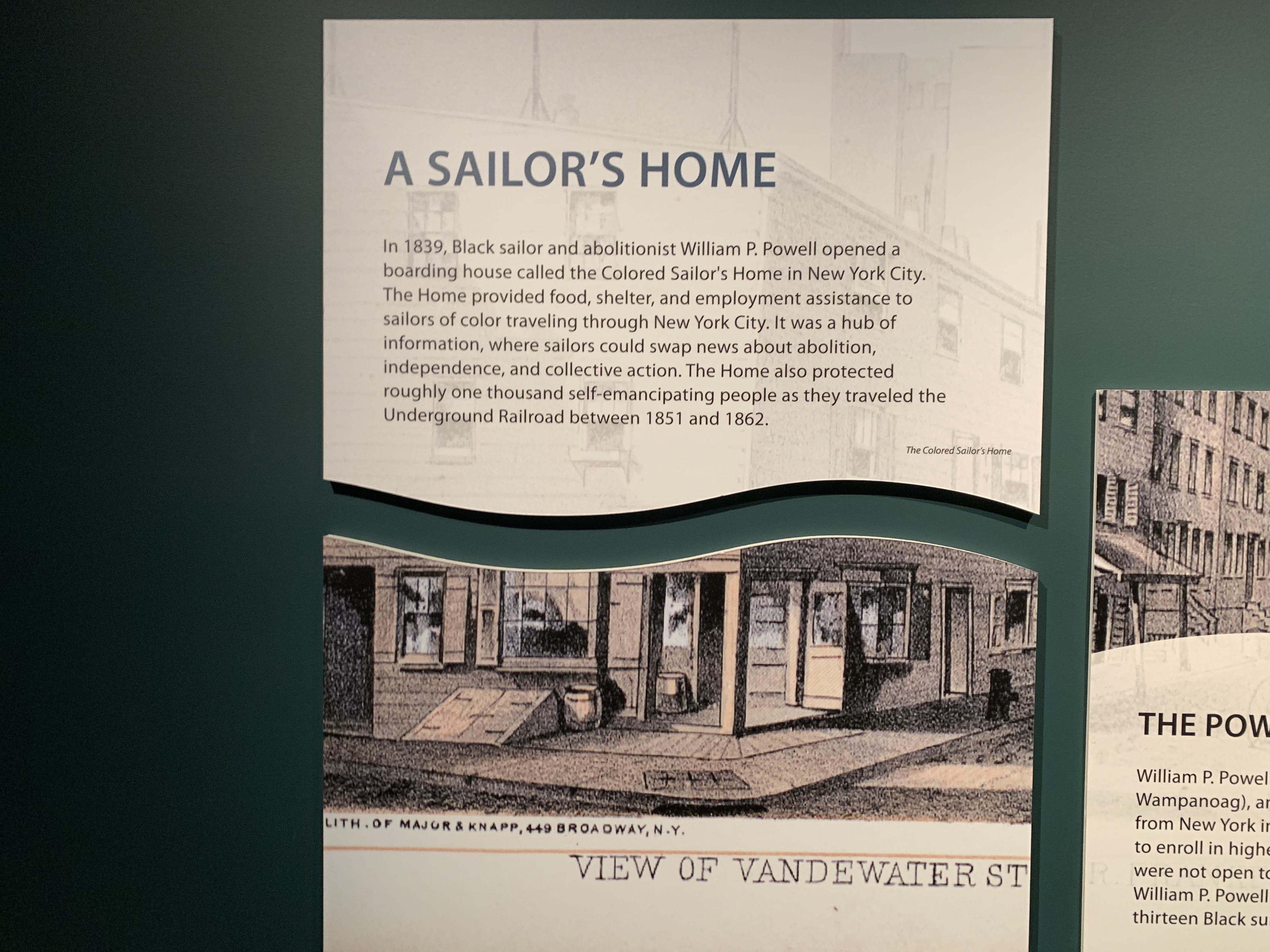Programs Blog
The Value of History

Thursday, 12 September 2024
Sea Education Association Campus, Woods Hole, Massachusetts
72°F bright and sunny
My name is Sara (“Sah-rah”) Abraha, and I’m an undergraduate student at Carleton College in Northfield, MN, majoring in Chemistry with a minor in Biochemistry on the pre-medical track. I’m originally from the St. Paul area, about 45 minutes north from Carleton. I’ve always had an interest in environmental sciences, which led me to apply to this program. I wanted to broaden my horizons beyond just human biochemical systems and expand my focus to the earth itself. After all, how can I care for and help humans without considering the health of our planet and environment? While my motivation for medicine runs deeper, I believe both are interconnected and essential for a holistic approach to well-being.
Before starting SEA and taking our marine environmental history class, history was never a subject I found compelling. To me, it felt distant, disconnected from the present, and too focused on events long gone. However, learning about the complex histories of the Caribbean, colonization, and the relationship between the US and these regions has completely reshaped my perspective. I’ve come to realize that history isn’t just about understanding the past—it’s about how those past events continue to influence the present and shape our future. And the more that I’ve learned, the more I’ve come to care about history and the ways it provides critical context for many of the challenges we face today.
Anywho, last Friday (09/06/24) our program (Coral Reef Conservation: Caribbean) and the Oceans and Climate program took a trip to Mystic Seaport in Connecticut. My favorite part of the trip was going to the Entwined exhibit. I thought that the focus on Indigenous and Black histories was amazing, and I felt an immediate connection. As a Black woman, I instantly knew that this would be more than just a historical exploration—it would be a personal journey. These were the stories that have been overlooked and hearing them from the perspective of Black and Indigenous people was a rare and refreshing experience. One of the first stories we encountered was The Sky Woman creation story (I want to be mindful, so I don’t think it’s my place to tell this story). Hearing this creation story reminded me of the deep spiritual connections Indigenous people have with the land and waters. It set the tone for the day, a reminder that the history of this land begins far before colonization.
One particular exhibit I was moved by was the story of the enslaved African people who arrived in the US and chose death over enslavement. Rather than accept their fates as captives, they walked into the water, a defiant act of resistance. It represented the powerful symbolism of water in African and African descendant traditions where water is a site of both life and death, freedom and loss. For me, this story represents the undying will to be free, even in the face of unimaginable suffering. It was hard not to feel emotional thinking of the strength they must have had.
Many of the stories told were passed down through generations and offer lessons in resilience and wit. They reminded me of the strength embedded in African storytelling traditions (like the ones my parents and grandpa used to tell me as a kid) –how these tales are not just for entertainment but are imbued with cultural values and wisdom that help us navigate the world. Throughout the day, I found myself becoming increasingly emotional as I reflected on the stories. It was difficult not to feel a deep connection to the pain and loss they must have felt, but there was also a profound sense of pride in knowing that they resisted, survived, and carried on the traditions.
This visit was much more than a history lesson, it was an affirmation of the importance of seeing our stories told from our perspectives. Too often, the narratives of Black and Indigenous people are filtered through the lens of colonizers, focusing on victimhood rather than resilience. This day, I felt their voices being honored in their full complexity—pain, joy, resistance, and survival all woven together. Leaving the museum, I felt a renewed sense of purpose, not just in remembering this history, but also continuing a palpable legacy of resilience.
Cheers,
Sara Abraha
Recent Posts from the Ships
- Ocean Classroom 2024-A collaborative high school program with Proctor Academy
- Collaborations and Long-term Commitments: SEA’s Caribbean Reef Program Sets a Course for Coastal Programs that Compliment Shipboard Experiences.
- Sea Education Association students prepare for life underway using state of the art nautical simulation from Wartsila Corporation.
- SEA Writer 2022, Magazines From the Summer SEA Quest Students
- Technology@SEA: Upgrades Allow Insight into Ocean Depths
Programs
- Gap Year
- Ocean Exploration
- High School
- Science at SEA
- SEA Expedition
- SEAScape
- Pre-College
- Proctor Ocean Classroom
- Protecting the Phoenix Islands
- SPICE
- Stanford@SEA
- Undergraduate
- Climate and Society
- Climate Change and Coastal Resilience
- Coral Reef Conservation
- Marine Biodiversity and Conservation
- MBL
- Ocean Exploration: Plastics
- Ocean Policy: Marine Protected Areas
- Oceans and Climate
- Pacific Reef Expedition
- The Global Ocean: Hawai'i
- The Global Ocean: New Zealand